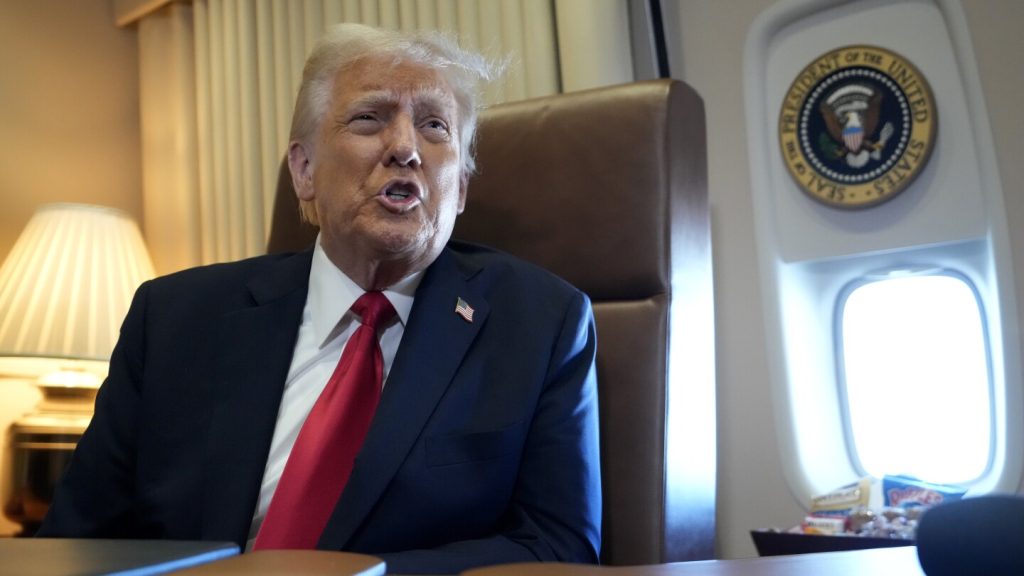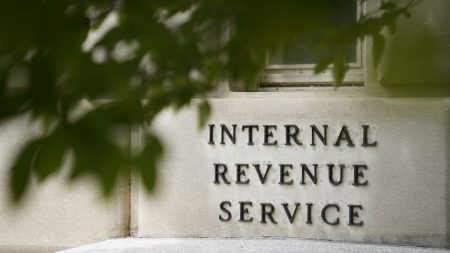The Idea of Canada as the 51st State: A Controversial Proposal
In a recent interview aired during the Super Bowl preshow, former President Donald Trump sparked controversy by expressing his seriousness about making Canada the 51st state of the United States. When asked if his discussions about annexing Canada were genuine, Trump replied affirmatively, stating that he believes Canada would benefit significantly from joining the U.S. He argued that the current trade dynamics between the two nations are unfair to the U.S., claiming that America loses $200 billion annually in its dealings with Canada. However, this claim has been met with skepticism, as the U.S. does not subsidize Canada but rather engages in trade, importing goods such as oil and natural resources. The trade deficit, which reached $72 billion in 2023, primarily reflects America’s reliance on Canadian energy exports. Despite this, Trump insists that the relationship is one-sided and unsustainable.
Canadian Prime Minister Justin Trudeau has also weighed in on the matter, revealing that Trump’s interest in making Canada the 51st state is closely tied to his desire to gain easier access to the country’s abundant natural resources. In a closed-door meeting, Trudeau suggested that Trump views annexation as a straightforward solution to tap into Canada’s wealth. While the idea of Canada becoming part of the U.S. is deeply unpopular among Canadians, Trump has repeatedly floated the concept, framing it as a way to address what he sees as an imbalanced trade relationship.
Trade Tensions and Tariffs: A Complicated Relationship
In addition to his comments on annexation, Trump also addressed ongoing trade tensions with Canada and Mexico. He expressed dissatisfaction with the progress made by both countries in addressing his concerns, particularly regarding border security and drug trafficking. Despite a temporary pause on his plan to impose a 25% tariff on imports from both nations, Trump made it clear that he believes more action is needed. He emphasized that the current situation is unsustainable and hinted at further measures, including reciprocal tariffs, to level the playing field. This approach has been a hallmark of Trump’s trade policy, as he seeks to renegotiate deals that he believes are unfavorable to the U.S.
Trump’s interview also touched on his decision to attend the Super Bowl in person, marking a historic moment as the first sitting president to do so. He expressed his belief that his presence at the game would be beneficial for the country, highlighting his desire to connect with the American people through such high-profile events. This gesture, while symbolic, underscores Trump’s efforts to maintain a visible and engaged presence on the national stage.
A Shift in Presidential Tradition
Trump’s participation in the Super Bowl interview itself was notable, as it marked a return to a tradition that has been inconsistent in recent years. Presidents have typically granted interviews to the network broadcasting the Super Bowl, the most-watched television event in the U.S. However, both Trump and his predecessor, Joe Biden, have been irregular in their participation. Biden declined to take part in the interviews during his presidency, and Trump’s involvement was inconsistent during his first term. This year, however, Trump embraced the opportunity, using it as a platform to address a range of topics, from trade policy to his personal interests.
During his flight to the Super Bowl on Air Force One, Trump also made headlines by signing a proclamation declaring February 9 as “Gulf of America Day.” This move, which renamed the Gulf of Mexico, was seen as a symbolic gesture that further cemented his unconventional approach to the presidency. Trump’s defenders have praised his willingness to challenge long-standing norms, while critics have accused him of overstepping his authority.
Elon Musk and Government Efficiency: A Shared Vision
In the interview, Trump also expressed his support for billionaire Elon Musk, particularly regarding Musk’s efforts to streamline government operations through his so-called Department of Government Efficiency (DOGE). While Musk’s initiatives have drawn criticism from Democrats, who worry about the impact of widespread federal job cuts and agency closures, Trump praised Musk’s work, calling him “terrific.” He suggested that Musk’s focus on rooting out waste and inefficiency aligns with his own campaign promises to tackle fraud and abuse within the federal government. Trump predicted that Musk’s efforts would uncover billions of dollars in misspent funds, a claim that has been met with skepticism by many experts.
A Glimpse into Trump’s Personality
The interview also offered a rare glimpse into Trump’s personality, as he was asked about his dancing, which has become a popular meme on social media. Trump, known for his unconventional style, admitted that he finds it difficult to resist dancing, even when he tries to avoid it. “I don’t know what it is,” he said with a smile. “I try and walk off sometimes without dancing and I can’t. I have to dance because it’s just that—something special about it.” This lighthearted moment provided a contrast to the more serious topics discussed during the interview, showcasing Trump’s ability to connect with audiences on a personal level.
In conclusion, Trump’s recent interview during the Super Bowl preshow highlighted his unwavering commitment to reshaping America’s relationships with its neighbors and his desire to leave a lasting impact on the federal government. While his ideas, such as annexing Canada, have been met with resistance, they reflect his outsider approach to politics and his willingness to challenge the status quo. Whether through trade policy, government reform, or his personal charm, Trump continues to be a central figure in American politics, ensuring that his influence will be felt for years to come.












